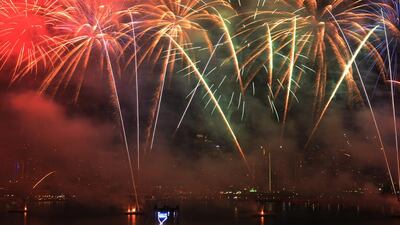The holiday season is winding to a close and now we enter what I think of as the season of “should”. This season begins with the ringing in of the new year, when the resolutions hover in the air like crows: this year there will be more exercise and less junk food; more budgeting and less splurging; more book reading and less telly watching.
You can tell it’s “should” season because the gyms and yoga studios are packed and people are grumpy because they’ve forsworn cigarettes or wine or caffeine or all three; fitness gear flies out of the stores and the Red Crescent boxes overflow with donations as people clean out drawers and closets. But what propels these “shoulds?” Is there some internal circadian rhythm that clicks in when the calendar page flips or are we all victims of the magazine headlines that constantly scream about the need for self-improvement?
Many years ago, a wise friend told me that I would be a happier person if I stopped thinking about “should”. Irony aside, we should all follow that advice. “Should” is the auxiliary verb of obligation and guilt-induced virtue; the road to hell isn’t paved with good intentions, it’s paved with “should.”
“Should” is particularly difficult to avoid during the holidays when so many of us travel to a place we call home from a place we call home. With ties in both places, we wonder where we should focus our attentions and affections.
When we were in New York for this most recent holidays, one of my children pointed out how hard it was to find enough time for both friends and family, given the relatively short length of our stay. I’m not complaining – how to see all our wonderful friends and family is a nice problem to have, after all – but it does feel complicated: I find myself rushing from coffee with this person to lunch with that person to dinner with someone else.
All this visiting plays havoc with my waistline (thus “should exercise more”). Always, there is the nagging feeling that I should be doing things differently.
Having lived for more than 20 years in New York, I can’t escape my own history when I go back, and I can’t imagine not going back on a regular basis, if for no other reason than there being too many people there whom I love. And yet when the plane touches down in Abu Dhabi, I say to my kids, “we’re home,” and I look forward to that first breath of Abu Dhabi air, which paradoxically smells of both the desert and the sea.
The “should” of expat life is the should of balance: should I align with one place over another? I encourage my children to work at learning Arabic and the history of the region, while also asking them to study the history and politics of the US. This dual focus should create children who are citizens of the world, right? Unless, of course, my expat kids end up feeling at home nowhere, members of the tribe of the eternally displaced.
I suppose sometimes “should” is inevitable but more often than not I think that it is a hedge, a way of saying “I’ll try”. And I can’t say “I’ll try” without hearing Yoda from Star Wars in my head, telling me to “do or do not. There is no try.”
So perhaps if I am going to resolve anything for this new year, I will resolve to be should-free; I will resolve not to resolve.
What if we all moved should-free into the new year, deciding that we’re all basically fine the way we are and that everyone around us is also just fine the way they are? Or if we must be governed by “should”, let’s go big: the world doesn’t need us to get more exercise or cut down on caffeine.
The world needs us to think more globally even as we act locally. What should we do to make our corners of the world safer, cleaner, more equitable? Maybe that’s what we should be thinking about, in all the places we call home.
Deborah Lindsay Williams is a professor of literature at NYU Abu Dhabi. Her novel The Time Locket (written as Deborah Quinn) is now available on Amazon

